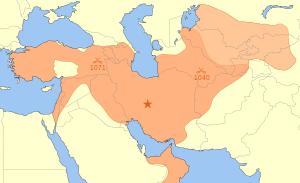| Millennium: | 2nd millennium |
|---|---|
| Centuries: | |
| Decades: | |
| Years: |
|
| Gregorian calendar | 1092 MXCII |
| Ab urbe condita | 1845 |
| Armenian calendar | 541 ԹՎ ՇԽԱ |
| Assyrian calendar | 5842 |
| Balinese saka calendar | 1013–1014 |
| Bengali calendar | 499 |
| Berber calendar | 2042 |
| English Regnal year | 5 Will. 2 – 6 Will. 2 |
| Buddhist calendar | 1636 |
| Burmese calendar | 454 |
| Byzantine calendar | 6600–6601 |
| Chinese calendar | 辛未年 (Metal Goat) 3788 or 3728 — to — 壬申年 (Water Monkey) 3789 or 3729 |
| Coptic calendar | 808–809 |
| Discordian calendar | 2258 |
| Ethiopian calendar | 1084–1085 |
| Hebrew calendar | 4852–4853 |
| Hindu calendars | |
| - Vikram Samvat | 1148–1149 |
| - Shaka Samvat | 1013–1014 |
| - Kali Yuga | 4192–4193 |
| Holocene calendar | 11092 |
| Igbo calendar | 92–93 |
| Iranian calendar | 470–471 |
| Islamic calendar | 484–485 |
| Japanese calendar | Kanji 6 (寛治6年) |
| Javanese calendar | 996–997 |
| Julian calendar | 1092 MXCII |
| Korean calendar | 3425 |
| Minguo calendar | 820 before ROC 民前820年 |
| Nanakshahi calendar | −376 |
| Seleucid era | 1403/1404 AG |
| Thai solar calendar | 1634–1635 |
| Tibetan calendar | 阴金羊年 (female Iron-Goat) 1218 or 837 or 65 — to — 阳水猴年 (male Water-Monkey) 1219 or 838 or 66 |
Year 1092 (MXCII) was a leap year starting on Thursday (link will display the full calendar) of the Julian calendar.
Events
By place
Byzantine Empire
- Summer – Emperor Alexios I (Komnenos) bribes one of Kilij Arslan's (sultan of the Sultanate of Rum) officials to recover Sinope (the capital of Paphlagonia), and neighbouring coastal regions. He uses the Byzantine fleet to defeat the Seljuk navy off the coast of Cius in Bithynia.[1]
Europe
- January 14 – Vratislaus II, the first king of Bohemia, dies after a 6½-year reign and is succeeded by his brother Conrad I who becomes duke and not king because Vratislaus has been elevated to the royal dignity 'for life' by Emperor Henry IV (see 1085). Conrad dies at September 6 after a 8-month reign and is succeeded by his nephew Bretislav II (the eldest son of Vratislaus).
England
- Summer – King William II annexes Cumbria from the Scottish Celtic kingdom of Strathclyde, and builds Carlisle Castle.[2]
- May 11 – Lincoln Cathedral, one of England's finest Gothic buildings, is consecrated.[3]
- High tides cause great flooding in England and Scotland. The Kentish lands of Earl Godwin are inundated, becoming known as the Goodwin Sands.[4]
Seljuk Empire
- November 19 – Sultan Malik-Shah I dies after a 20-year reign while hunting. The Seljuk Empire falls into chaos, his brother Tutush I and rival successors carve up their own independent sultanates in the Middle East. Malik-Shah is succeeded by his son Mahmud I, but he does not gain control of the empire.
China
- Su Song, a Chinese statesman and scientist, publishes his Xin Yi Xiang Fa Yao, a treatise outlining the construction and operation of his complex astronomical clocktower, built in Kaifeng. It also includes a celestial atlas of five star maps.
By topic
Religion
- April 21 – The Diocese of Pisa is elevated to the dignity of an metropolitan archdiocese by Pope Urban II.
- May 21 – Synod of Szabolcs: King Ladislaus I assembles an council of the prelates of Hungary at the fortress of Szabolcs.
Births
- Adélaide de Maurienne, queen of France (d. 1154)
- Al-Mustarshid, caliph of the Abbasid Caliphate (d. 1135)
- Fulk V (the Younger), king of Jerusalem (d. 1143)
- Magnús Einarsson, bishop of Skálholt (d. 1148)
- Peter the Venerable, French monk and abbot (d. 1156)
- Sachen Kunga Nyingpo, Tibetan Buddhist leader (d. 1158)
- Sybilla of Normandy, queen of Scotland (d. 1122)
- Zhang Jiucheng, Chinese politician (d. 1159)
Deaths
- January 14 – Vratislaus II, duke and king of Bohemia
- May 7 – Remigius de Fécamp, bishop of Lincoln
- September 6 – Conrad I, duke of Bohemia
- October 14 – Nizam al-Mulk, Seljuk vizier (b. 1018)
- November 19 – Malik-Shah I, Seljuk sultan (b. 1055)
- Abu'l-Qasim, Seljuk general and governor
- Bermudo Ovéquiz (or Vermudo), Spanish nobleman
- Bogumił, archbishop of Gniezno (approximate date)
- Ermengol IV (or Armengol), count of Urgell (b. 1056)
- Helibo, Chinese nobleman and chieftain (b. 1039)
- Jordan of Hauteville, Italo-Norman nobleman
- Richard de Montfort, French nobleman
References
- ^ Brian Todd Carey (2012). Road to Manzikert: Byzantine and Islamic Warfare (527–1071), p. 160. ISBN 978-1-84884-215-1.
- ^ "Carlisle Castle". English Heritage. Archived from the original on January 10, 2008. Retrieved December 21, 2007.
- ^ "Lincoln Cathedral website". Archived from the original on January 10, 2008. Retrieved December 21, 2007.
- ^ Stratton, J. M. (1969). Agricultural Records. London: John Baker. ISBN 0-212-97022-4.
